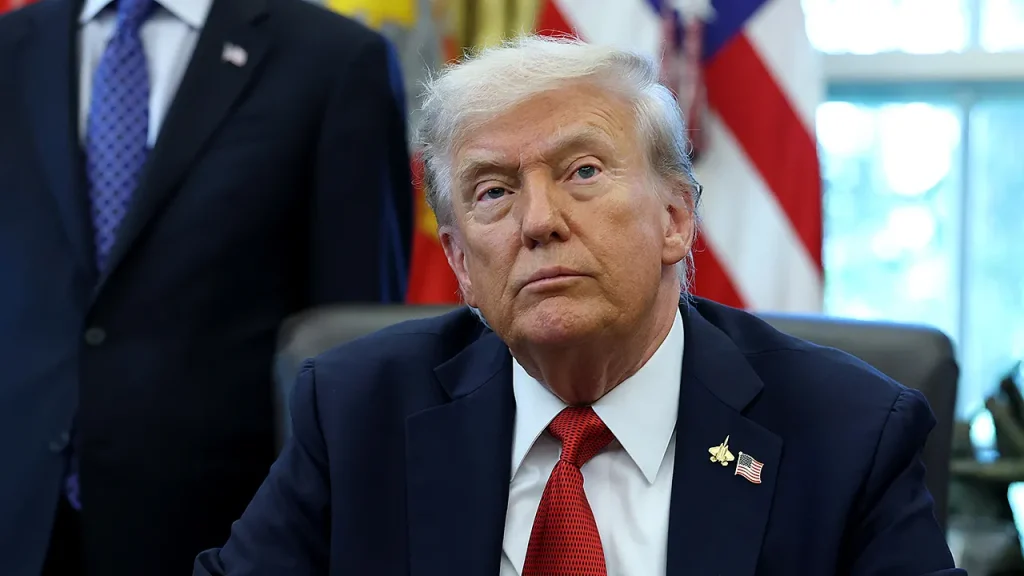Trump Orders Military Pay to Continue Despite Government Shutdown
In a bold move that underscores the ongoing tensions between the White House and Congress, President Donald Trump signed a directive Wednesday ensuring U.S. troops will continue receiving their paychecks despite the government shutdown now stretching into its third week. The directive, formally issued as National Security Presidential Memorandum-8 (NSPM-8), instructs the Department of War to utilize available fiscal year 2026 funds to cover military pay and allowances. “The current appropriations lapse presents a serious and unacceptable threat to military readiness and the ability of our Armed Forces to protect and defend our Nation,” states the presidential memo, which reflects Trump’s growing frustration with the congressional gridlock that has left the government partially unfunded.
The decision to bypass Congress on military pay represents a significant departure from how previous administrations have handled government shutdowns. Typically, presidents wait for lawmakers to reach bipartisan funding agreements rather than intervening directly with executive action. Trump, however, cited his constitutional powers as commander-in-chief under Article II to justify the order, which covers both active-duty personnel and reservists currently serving on orders. Without this intervention, more than one million service members faced the prospect of missed paychecks beginning this week—a situation that military families and advocates had warned could cause severe financial hardship for those who serve the nation. The directive specifically instructs officials to use only funds legally designated for military pay, working in coordination with the Office of Management and Budget to ensure compliance with fiscal regulations.
The Pentagon has not publicly identified which specific accounts will provide the roughly $8 billion needed to maintain military pay, according to reports from Roll Call and Reuters. This lack of transparency has raised questions about the implementation details, with some experts expressing concerns about potential legal challenges under the Antideficiency Act—a law that prohibits federal agencies from spending money not specifically appropriated by Congress. The White House, however, maintains that the law permits spending that bears a “reasonable, logical relationship” to the purpose of originally allocated funds. In this case, officials argue, keeping troops paid falls squarely within that interpretation. Neither the White House, the Office of Management and Budget, nor the Department of War has responded to requests for additional comment on the specifics of how the directive will be implemented.
The presidential action has drawn mixed reactions from lawmakers on Capitol Hill. Representative Nick LaLota, a Republican from New York, told Fox News Digital that “Trump’s mid-month action was welcome news to the military community,” while acknowledging ongoing concerns about end-of-month obligations like mortgages and car payments that service members face. LaLota criticized Democrats for what he characterized as using “troop pay as leverage to accomplish their political goals,” while emphasizing that Republicans should not exploit the situation either. “It would be just as wrong for a Republican to hope that lack of pay would be a catalyst to get Democrats to acquiesce,” he stated, praising Trump for “protecting the troops when Congress won’t.”
The current standoff represents one of the longer government shutdowns in recent history, with serious implications for federal agencies and employees beyond just the military. While the presidential directive addresses the immediate concern of military pay, it does not resolve the underlying budget impasse that has left numerous government functions suspended or severely curtailed. The situation highlights the deep partisan divisions in Washington, where lawmakers have failed for weeks to reach agreement on spending priorities and policy riders that have become entangled with basic government funding. Military families, while relieved about continued pay, remain anxious about the longer-term stability of their financial situation if the shutdown persists.
This unprecedented presidential intervention could have far-reaching implications for how government shutdowns are handled in the future. By establishing a precedent for executive action to maintain military pay during appropriations lapses, Trump’s directive may fundamentally alter the dynamics of budget negotiations for years to come. Some observers suggest this could diminish congressional leverage in future standoffs, while others argue it appropriately shields military personnel from becoming pawns in political disputes. The directive follows Trump’s initial order on October 11th to maintain military payments, but this latest action represents a more formal and comprehensive approach to addressing the issue. As the shutdown continues with no immediate resolution in sight, the impact of this executive action will likely be studied by constitutional scholars and political strategists alike, potentially reshaping the relationship between the executive and legislative branches during budget crises for generations to come.


